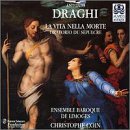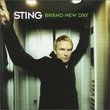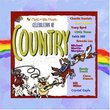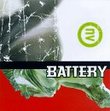| All Artists: Draghi, Coin, Ensemble Baroque de Limoges Title: Vita Nella Morte Members Wishing: 0 Total Copies: 0 Label: Auvidis Release Date: 6/9/1998 Genres: Pop, Classical Styles: Vocal Pop, Historical Periods, Baroque (c.1600-1750) Number of Discs: 1 SwapaCD Credits: 1 UPCs: 713746091125, 3298490086162 |
Search - Draghi, Coin, Ensemble Baroque de Limoges :: Vita Nella Morte
 | Draghi, Coin, Ensemble Baroque de Limoges Vita Nella Morte Genres: Pop, Classical
|
Larger Image |
CD DetailsSimilar CDs |
CD ReviewsAn interesting byway John Weretka | Melbourne, Australia | 03/04/2004 (3 out of 5 stars) "Rather like Bassani's 'La morte delusa' which I also reviewed, this CD canvasses the little known oratorio repertoire of the seventeenth century. Like 'La morte delusa', though, the results are mixed. Moments in the music are indeed stunning, aided by an exquisite orchestration which concentrates on lower strings, especially viols. But there are also long stretches where the music is stereotypical and fairly uninspired. On the basis of the setting of Dryden's 'From heavenly harmony' by his supposed brother Giovanni Battista Draghi, I had expected more of this music. Like 'La morte delusa', the standard of performance in this recording is widely different depending on which performers you consider. The instrumentalists perform with great sensitivity. The singers on the other hand are a very mixed bunch and some vocal sounds and characterisations are naive. The greatest highlight of this disc is the singing of Rodrigo del Pozo, in the only genuinely solo role I have heard him sing. This tenor-altino is best known for his performance of alto lines in North Italian polyphony of the seventeenth century (for example in the Cavalli Vespers of the Blessed Virgin recorded by Concerto Palatino). This is a stunning and almost unearthly voice, and gave me the same thrill as when I first heard Alessandro Moreschi's voice on CD. In fact, the opportunity to hear this remarkable voice is the best (and perhaps the only) reason to buy this recording." A neglected masterpiece hcf | 10/24/2000 (5 out of 5 stars) "Unlike his more famous relative Giovanni Battista Draghi (a Purcell contemporary who worked in London), Antonio Draghi has been all but forgotten. However, if this work is any indication, his output definitely contained some gems. This is the first ever recording of La Vita nella Morte (Life in Death), but it definitely deserves to be heard. La Vita nella Morte belongs to the genre of Italian sepolcro, a forerunner of oratorio. As the name suggests, the main theme is the passion of Christ. The evangelist of sorts is Humanita, an allegorical figure describing its path from the fall to redemption. The lineup of characters includes Adam and Eve, but other than that all characters are allegories: Speranza (hope), Morte (death), Angelo (angel, obviously), Peccato (sin) etc. Don't expect to be bored: despite the static libretto, a lot of the music is very lively and dynamic. One ensemble ("Nome dolce, nome pio") is particularly stunning: it features two solo sections sung by the alto (Humanity), followed by two soprano-alto duets (Hope & Humanity), with a madrigalian SAB trio right in the middle (Death, Toil and Sin). In this ensemble, when the voices of Hope and Humanity return after being interrupted by the ramblings of Death, Toil and Sin, the effect is both beautiful and uplifting. The performances are extraordinary. Special praises go to the high tenor Rodrigo del Pozo in the role of Humanita (note, this is an alto role, but you won't believe how well he sings it! - check out his solo CD "Sacred Songs of Sorrow"). --gggimpy@yahoo.com."
|

 Track Listings (25) - Disc #1
Track Listings (25) - Disc #1



